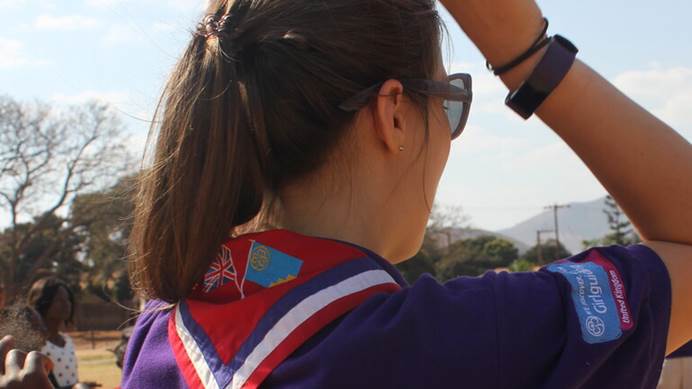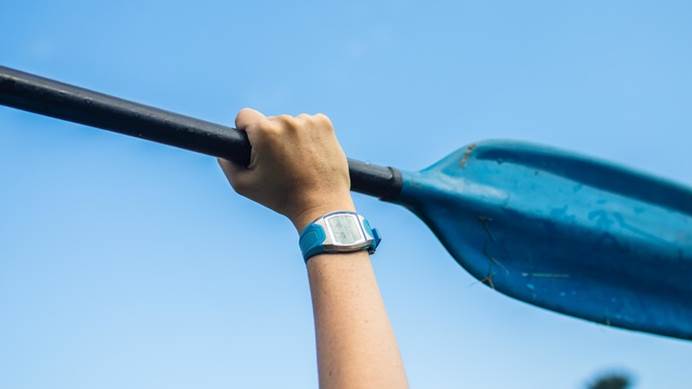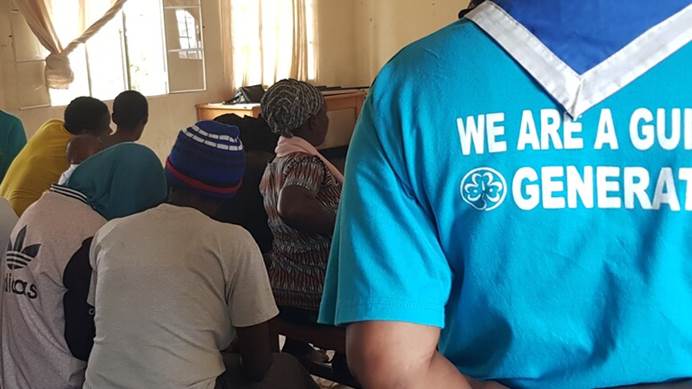Managing finances for overseas trips
Make sure your finances are in check before heading overseas.
Going on an overseas trip, like an international residential, has its own financial considerations.
This guidance is part of our finance procedures.
It can be a lot to think about, so make sure you factor in time to read our procedures, chat with the trip's leadership team and make sure all your finances are in place before you go away.
Managing finances
When you make a budget for your trip, you'll need to factor in unexpected costs and make sure you don't need to use any of your own money. You might also need to fundraise to make the trip happen.
It’s important that any fundraising is carried out in line with our fundraising policy. The trip's leadership team will need to agree to what will happen to do any leftover money once the trip is over and how refunds will be issued if someone decides not to, or can't, travel.
Booking travel
When it comes to booking travel, like plane tickets, make sure you have enough money before making the purchase. This may mean doing fundraising activity or collecting payments or deposits from members before buying tickets. It’s important that parents, carers and young members have realistic expectations about how much the trip, including travel, will cost.
The price of flights and trains can vary a lot, so do some research to find out how much you should expect to pay. If you buy tickets through a third-party provider to save money, make sure they are ATOL protected.
It can be tempting to choose the cheapest option or hold off on making a purchase in case the prices fall, but this isn't always the best decision. Weigh up the potential costs and possible benefits in advance, as well as any challenges that might come up because of hanging on for cheaper tickets. Discuss these with your leadership team.
It's often recommended that flights are paid for by credit card, because they provide extra financial protection. As units and levels do not hold credit cards, volunteers may choose to use their personal credit cards. Our finance policy says that you must minimise the use of personal money for guiding costs, so we don't recommend that personal credit cards are used.
If they are, make sure that the full cost of the flight has already been collected and is repaid to the volunteer immediately. Also consider the potential impact on the volunteer who has used a personal credit card if the trip is cancelled, as there may be costs that come with this.
Be sure to check the travel provider’s terms and conditions on cancellations and refunds. If parents and carers are asked to pay for the cost of travel, let them know if they can be refunded and what the conditions of refunds are.
Prepaid cards
You might decide to use a prepaid card, sometimes known as a cash card, for an overseas trip. They can also be used for trips in the UK. Using a prepaid card is safer than carrying cash. And can save you money on bank charges when overseas.
When choosing a prepaid card, check that the provider is registered with the Financial Conduct Authority (FCA). Remember that money held on the card is unlikely to be protected.
In practice, prepaid cards work like debit cards. But they are not linked to a bank account. Instead, you can top them up, like using a pay-as-you-go mobile phone.
When using a prepaid card, follow the finance policy in the same way you would when using debit card in guiding. This includes agreeing purchases as a team, keeping receipts and recording spending accurately.
Decide as a team who can top it up and how it will be recorded. We recommend that someone in the UK is also able to top up the card in case there's an emergency or you have difficulty accessing the internet while on your trip. Also think about what will happen to any money left on the card when you return to the UK.
Prepaid cards will be accepted by most ATMs and at businesses that accept card payments. But you might not be able to use one for transactions that need pre-authorisation, such as hotels, car hire deposits and some fuel stations. Don't only rely on your prepaid card and make sure you have a backup option.
Even though we recommend cash is kept to a minimum, and using a debit card overseas might mean charges from your bank, it could be the only way to make some transactions.
Bank charges
When overseas, it's more likely that you'll be charged by your bank to use a debit or credit card, which is why a prepaid card can be a good option. Charges banks can make for using a debit or credit card overseas include:
- Non-sterling transaction fee: Usually charged when a debit card is used to make a transaction in a different currency to sterling.
- Non-sterling purchase fee: Usually charged on top of a non-sterling transaction fee when a debit card is used for purchases abroad. It is usually a flat rate, but can also be a percentage of the overall spend.
- Non-sterling cash withdrawal fee: Usually charged when withdrawing money from an ATM overseas, over the counter at a shop, or when buying currency or traveller’s cheques outside of the UK. It’s usually a flat rate, but can also be a percentage of the overall spend. A non-sterling transaction fee can also be applied on top of this.
Insurance
It’s important you make sure you have adequate insurance to cover your trip. This needs to be in place before any payments are made. This will help you to establish how cancellations and refunds should be managed. Find out more about travel and trip insurance.




